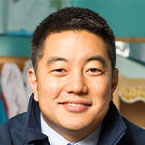By: Andrew N. Hashikawa, MD, MS, FAAP
We have learned a lot recently about how to help kids in child care avoid getting sick when respiratory illnesses are spreading.
Still, infants in child care under age 6 months are too young to get flu (influenza) or COVID vaccines. Children younger than 2 years are too young to wear a mask. Masks are recommended in areas with medium and high community levels of COVID and any time spread is more likely.
What can be done to keep children healthy?
Get a flu shot
For kids in child care settings, staying up to date on vaccines like flu vaccinations is key. Flu shots will not prevent COVID, the cold, or respiratory syncytial virus (RSV). But like these illnesses, the flu can make babies and young children very sick.
Nearly every flu season, very young children are hit the hardest by the flu. In 2019-2020 (before the pandemic), a record-breaking 199 children died from the
flu. Most who died that year had not received flu vaccinations. According to the Centers for Disease Control and Prevention (CDC), by Dec. 31, the flu already led to 74 deaths among children this season.
Flu vaccines protect babies and young kids. That way, it is
much less likely they will need hospital care or die from flu complications. The American Academy of Pediatrics recommends
flu vaccines for babies and children 6 months of age and older. Your child can catch up on all immunizations at a well-child
visit.
And remember, parents and child care staff need annual flu shots, too. Child care staff may have received their COVID vaccines. But COVID shots do not protect us from the flu.
It's not too late!
Many children still need to get a flu shot this season. The timing of flu season can change each year. Flu season usually starts in October, peaks in February and may last into May.
Children are also still getting infected with COVID. Children eligible for a flu shot and COVID shot can get both at the same visit. The AAP recommends COVID vaccines for everyone age 6 months and older. Adults and kids who are eligible should get an updated COVID vaccine, too, when it is time. (Read about COVID vaccines for kids
here.)
Flu shots protect the people around us.
What happens at daycare when everyone is up to date on vaccinations?
Kids can stay in school and other activities.
Adults will not have to miss work or obligations.
We protect children who are too young to get vaccinated.
Community immunity through influenza vaccination helps keep those around us safe—people at high risk of serious illness, like cancer patients and our grandparents. Older people (65 years and older) need flu shots, too. They are at higher risk of getting very sick from the flu.
Being up to date on vaccines protects infants in child care who are too young to get vaccinated.
Serious flu illness and death can be (mostly) avoided.
We all know that little kids like to put everything in their mouths! Young children's immune systems are not fully developed. Flu shots equip protect young kids' immune systems to resist influenza virus in child care.
So why do some children with the flu end up in the hospital? The flu can make their body very weak and dehydrated—much more than a common cold. Children may need hospital care if their body becomes too weak from the flu. Sometimes, children develop complications from being sick, like pneumonia (when the infection spreads to the lungs).
There is no cure for the flu. Antiviral medicine can shorten the time that a person is sick. But they do not replace the need to get a flu shot.
Remember
As we have learned from the COVID-19 pandemic, there is not one way to prevent
illnesses at child care. But layers of protection will keep us safe. This includes:
teaching young children how to wash their hands and use hand sanitizer when developmentally ready,
making sure that eligible children and staff are vaccinated
keeping everyone informed about child care sick-child policies so they know when a
sick child should stay home
contacting your pediatrician if you have any questions about getting the flu shot.
When we all do our part, it keeps us healthy. It keeps our friends healthy—and it protects those at highest risk, too.
More information
About Dr. Hashikawa
 Andrew Hashikawa, M.D., M.S., FAAP, is a clinical professor in the departments of Emergency Medicine and Pediatrics at Michigan Medicine and a practicing pediatric emergency medicine physician at Mott Children's Hospital at the University of Michigan. He is a member of the American Academy of Pediatrics Council on Early Childhood Executive Committee and is an early childhood champion and child care health consultant. His research focuses on infectious disease surveillance in child care programs.
Andrew Hashikawa, M.D., M.S., FAAP, is a clinical professor in the departments of Emergency Medicine and Pediatrics at Michigan Medicine and a practicing pediatric emergency medicine physician at Mott Children's Hospital at the University of Michigan. He is a member of the American Academy of Pediatrics Council on Early Childhood Executive Committee and is an early childhood champion and child care health consultant. His research focuses on infectious disease surveillance in child care programs.